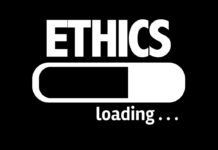Social Adversity, Mental Distress, and the Theatre of the Oppressed
The theatre of the oppressed directly challenges societal problems of oppression. Here the involved learn much from the enactment—concrete possible solutions and possible practices of resistance.
Dual Diagnosis Anonymous: Peer Support for Those Who Need It
What worked for participants is the compassionate, welcoming, inclusive and non-judgmental approach of DDA. It is about peer support, role modelling, hope, building skills… acquiring self-confidence and building a new identity.
Writing Is My Best Medicine
For me, writing is a powerful tool for wellness and healing, whether that involves an escape into science fiction or simply putting my dreams, emotions, memories, and observations on paper.
White House Killed Deal to Pay Mental Health Care of Separated Migrant Families
From NBC News: Sources said the White House counsel's office said no after checking with Trump adviser Stephen Miller. A White House official denied Miller had a role.
Rethinking Suicide Prevention: An Interview on Critical Suicide Studies with Jennifer White
MIA’s Samantha Lilly interviews critical youth suicidologist Jennifer White about what suicide prevention could look like outside of the medical model.
A Psychiatrist Critiques Psychiatry, and Does a Great Job!
Dr. Lieblich's critique of psychiatry is precise, hard-hitting, and uncompromising, a superb and compelling summary of the case against psychiatry.
For Hannah Arendt, Totalitarianism Is Rooted in Loneliness
From Aeon: Organised loneliness, bred from ideology, leads to tyrannical thought, and destroys a person’s ability to distinguish between fact and fiction – to make judgments.
Insane Medicine, Chapter 4: The Manufacture of Autism Spectrum Disorders (Part 1)
Because the “scientists” who study, categorise, and establish guidelines for autism can’t find anything definitive, they resort to scientism. Over time, it becomes part of our cultural “common sense.”
Journal Flags — but Does Not Retract — Decades-Old Paper on “Correcting” Gender Identity
From Retraction Watch: A psychology journal has expressed concern about a 46-year-old paper which described attempts to correct 'deviant' gender identity in a 5-year-old boy using physical violence.
‘How Did We Not Know?’ Gun Owners Confront a Suicide Epidemic
From The New York Times: The concern about suicides has led to an unusual alliance between suicide-prevention advocates and gun-rights proponents.
Does the NASW Code of Ethics Prohibit Peer Work?
An analysis of the National Association of Social Workers Code of Ethics’ regulations on dual relationships: Indications for self-disclosure and problematic consequences for peers entering the social work workforce.
Could Calif.’s Psych Hospitals Be Ordered to Admit Inmates With COVID?
From CalMatters: The Department of State Hospitals is facing pressure in federal court to speed up admissions of 'mentally ill' inmates from the COVID-riddled state prison system.
Immigration Detention: The Mental Health Impacts
Solitary confinement is not a substitute for medical isolation and its conditions are not conducive to care or recovery, but rather a tool to manage and silence those struggling with trauma exacerbated by conditions they are trapped in indefinitely.
It’s Always Stage 4 in Locked Mental Health Wards
From Right Now: Human Rights in Australia: "I have a terror of seeking help from any health practitioner, for fear I may end up subjected to these practices again... mental health services did enormous long-lasting harm." ~ Indigo Daya
Stop Saying This, Part 6: It Takes Two, Life’s Not Fair, and More
It’s common that both people are contributing to the issue in one way or another. However, there is at least one instance that renders “it takes two” unavailable for blanket-statement use, and that is abuse.
Increasing Numbers of Children Prescribed Multiple Psychiatric Medications
According to researchers, children are being increasingly prescribed multiple different psychiatric medications.
Insane Medicine, Chapter 3: The Manufacture of ADHD (Part 2)
Sami Timimi discusses the lack of findings for a genetic or neurobiological basis for ADHD, and explores the short- and long-term effects of stimulant drugs.
Stopping Antidepressants: Exploring the Patient’s Experience
From the Royal College of Psychiatrists: Professor Wendy Burn of the Royal College of Psychiatrists and expert-by-experience James Moore discuss the challenges of stopping antidepressants and what more is needed to better support patients.
For George Floyd and Black Men in Recovery, ‘Everything Piles Up’
From The Washington Post: Finding a way to live has never been a sure thing for Black men in America, who are taught from an early age that any misstep could lead to a prison cell or a coffin.
How Culture Influences Voice Hearing: An Interview with Stanford Anthropologist Tanya Luhrmann
Ayurdhi Dhar interviews Tanya Luhrmann about cultural differences in voice-hearing, diagnosis and damaged identities, and conflicts in psychiatry.
Understanding Mental Illnesses, and Ourselves
I trained in psychiatry in the 1950s. I saw psychiatry switch from trying to help patients to understand themselves better to trying to find a drug that would relieve their symptoms.
Podcast of the Ottawa Institute of CBT Interviews Robert Whitaker
From the Ottawa Insitute of CBT: The Thoughts on Record podcast speaks with Whitaker about the core themes of his book Anatomy of an Epidemic: Magic Bullets, Psychiatric Drugs, and the Astonishing Rise of Mental Illness in America.
Charity: Hundreds of Thousands With Mental Health Conditions Being Chained
From The Guardian: “Shackling people with mental health conditions is a widespread, brutal practice that is an open secret in many communities,” said Kriti Sharma of Human Rights Watch.
Teenage Hockey Player Working to Destigmatize ‘Mental Health Issues’
From ESPN: "No one with mental health issues should be called a burden," said Morgan Urso. "And that is the stigma I am trying to end."
Insane Medicine, Chapter 3: The Manufacture of Attention-Deficit/Hyperactivity Disorder (ADHD) (Part 1)
Both the idea that there are some characteristic brain-based abnormalities for those diagnosed with ADHD, and that the medications used have specific properties that target a disease process—like a chemical imbalance—are false.

































